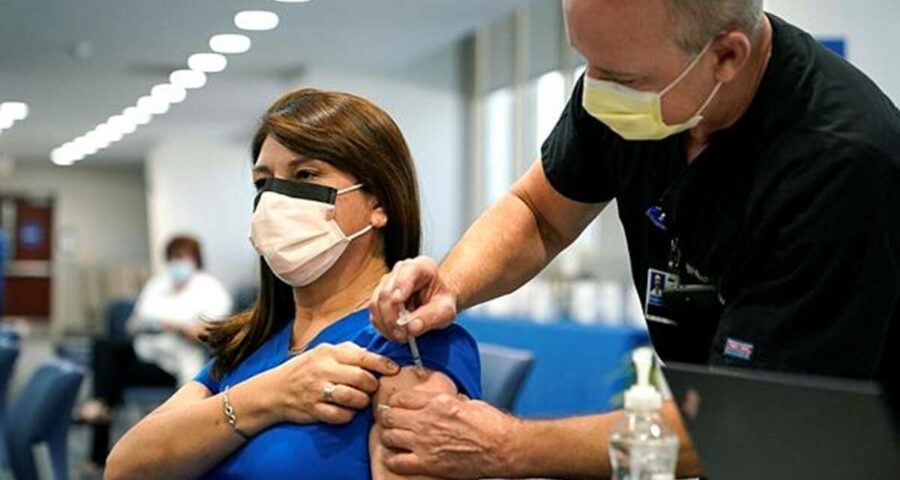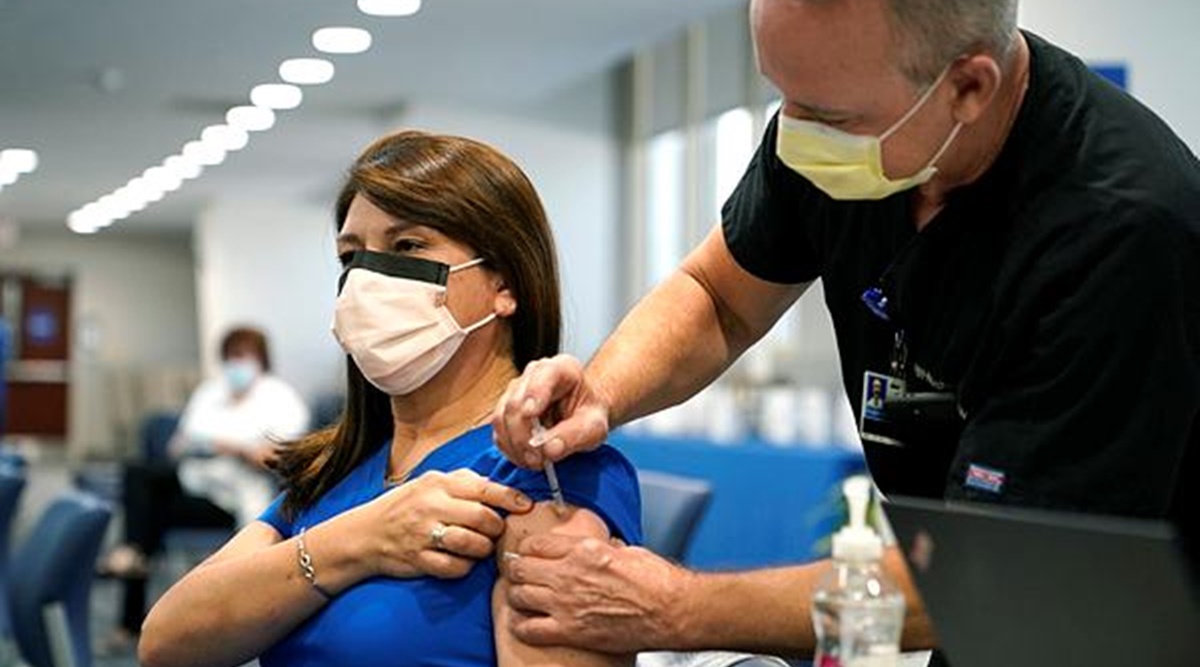On Thursday, the FDA’s advisory panel of vaccine experts will discuss safety and efficacy data regarding booster shots for Moderna recipients. On Friday, the group will discuss Johnson & Johnson boosters.
Written by Benjamin Mueller
The federal government is expected to take a significant step this week toward offering booster doses to a much wider range of Americans as advisers to the Food and Drug Administration meet Thursday and Friday to discuss recipients of the Johnson & Johnson and Moderna coronavirus vaccines.
So far, regulators have authorized booster shots only for certain adults who received the Pfizer-BioNTech vaccine — a source of some frustration to the government’s medical advisers, who questioned at a meeting last month whether recipients of the other shots were being left out.
But the Biden administration is eager to shore up the protection provided by all three vaccines. And federal officials have become increasingly worried in particular about the more than 15 million Americans who received the Johnson & Johnson vaccine, which is less effective than the others.
On Thursday, the FDA’s advisory panel of vaccine experts will discuss safety and efficacy data regarding booster shots for Moderna recipients. On Friday, the group will discuss Johnson & Johnson boosters. The agency typically issues decisions within a few days of advisory committee meetings.
The expert committee Friday will also hear an eagerly awaited presentation from scientists at the National Institutes of Health on the effectiveness of mixing different brands of vaccines.
Dr. Peter Marks, the FDA’s top vaccine regulator, suggested last week that federal officials favor extra shots for all three vaccines. “The data seem to demonstrate that booster shots seem necessary,” he said.
The deliberations come as coronavirus cases across the nation are falling, with the seven-day average of daily new cases slipping below 100,000 for the first time since early August. Hospitalizations and deaths are also down.
The meetings also come as the drugmaker Merck said it had applied for federal authorization of what would be the first antiviral pill to treat COVID. The drug, molnupiravir, would be a less-expensive treatment for high-risk people sick with COVID than the antibody treatments currently in use. But at least at first, many more Americans would be eligible than the supply could cover. So far, the federal government has placed an advance order for enough pills for 1.7 million Americans.
On Sunday, Dr. Anthony Fauci, the nation’s top infectious disease doctor, said in a CNN interview that “we have to be careful that we don’t prematurely declare victory,” citing the potential for the virus to rebound among unvaccinated Americans.
Fauci said that vaccinating younger children could offer another crucial line of defense. As early as Halloween, the FDA could authorize the Pfizer-BioNTech vaccine for children ages 5-11, a move that could help protect more than 28 million people in the United States.
Although the federal government has emphasized for months that all three vaccines are highly effective, a recent study by the Centers for Disease Control and Prevention found that Johnson & Johnson’s single-dose vaccine was only 71% effective against hospitalization from COVID, compared with 88% for the two-dose Pfizer-BioNTech vaccine and 93% for Moderna’s two-shot regimen.
Last month, Johnson & Johnson announced that a second dose bolstered the vaccine’s effectiveness against symptomatic COVID to 94%. The firm also said two shots were 100% effective against severe disease, although that estimate was less conclusive.
People eligible for Pfizer’s booster include those 65 and older and those who live in long-term care facilities, have underlying medical conditions or are at higher risk of exposure to the virus because of their jobs or institutional settings, a group that includes health care workers, teachers and prisoners.
The FDA and CDC are expected to propose essentially the same criteria for booster shots of Moderna and Johnson & Johnson, although they could also discuss whether to broaden eligibility to include more middle-aged people.
Source: Read Full Article


